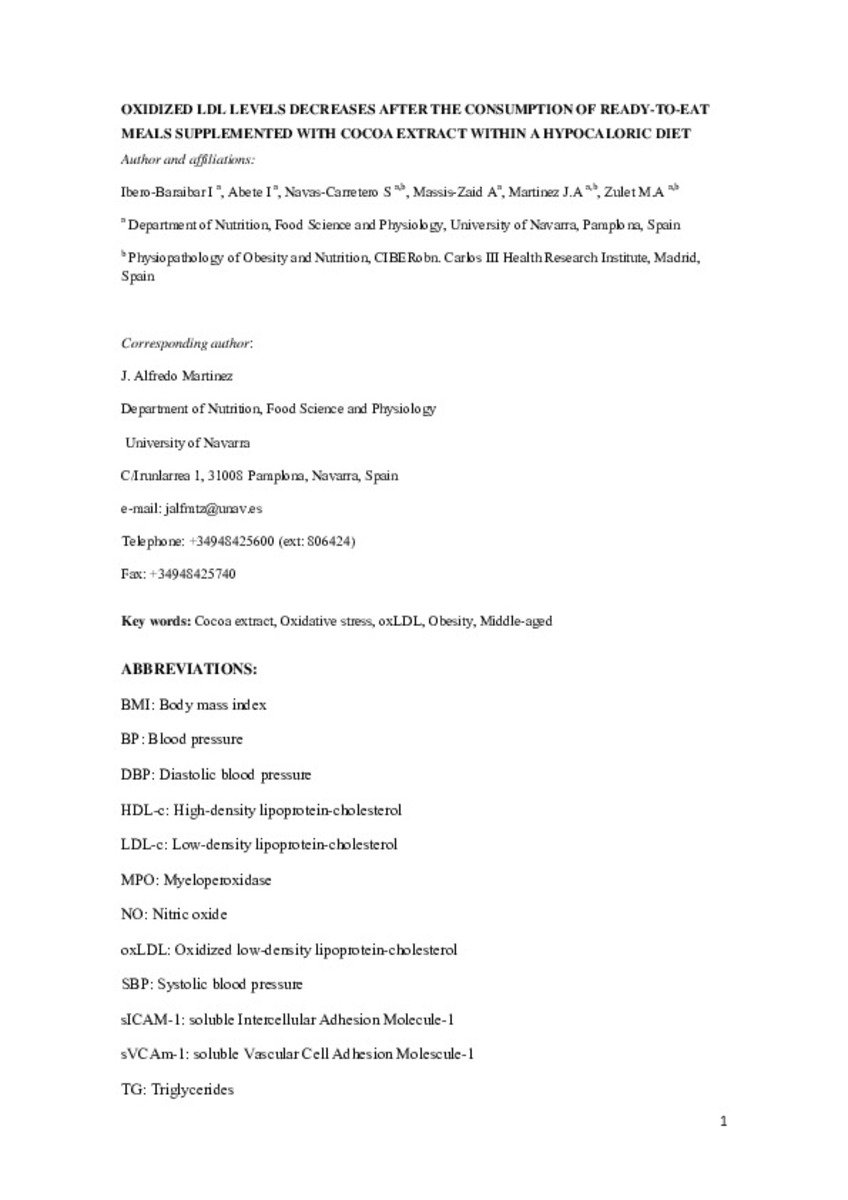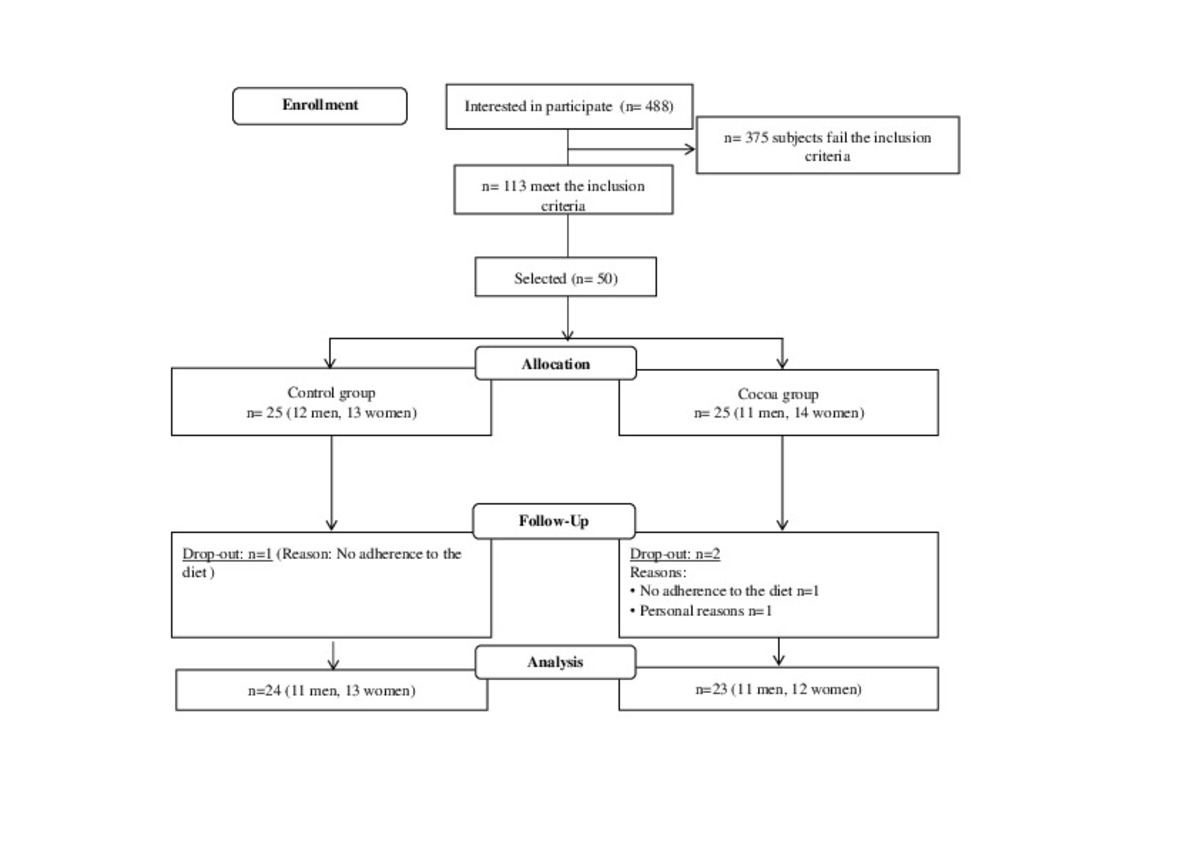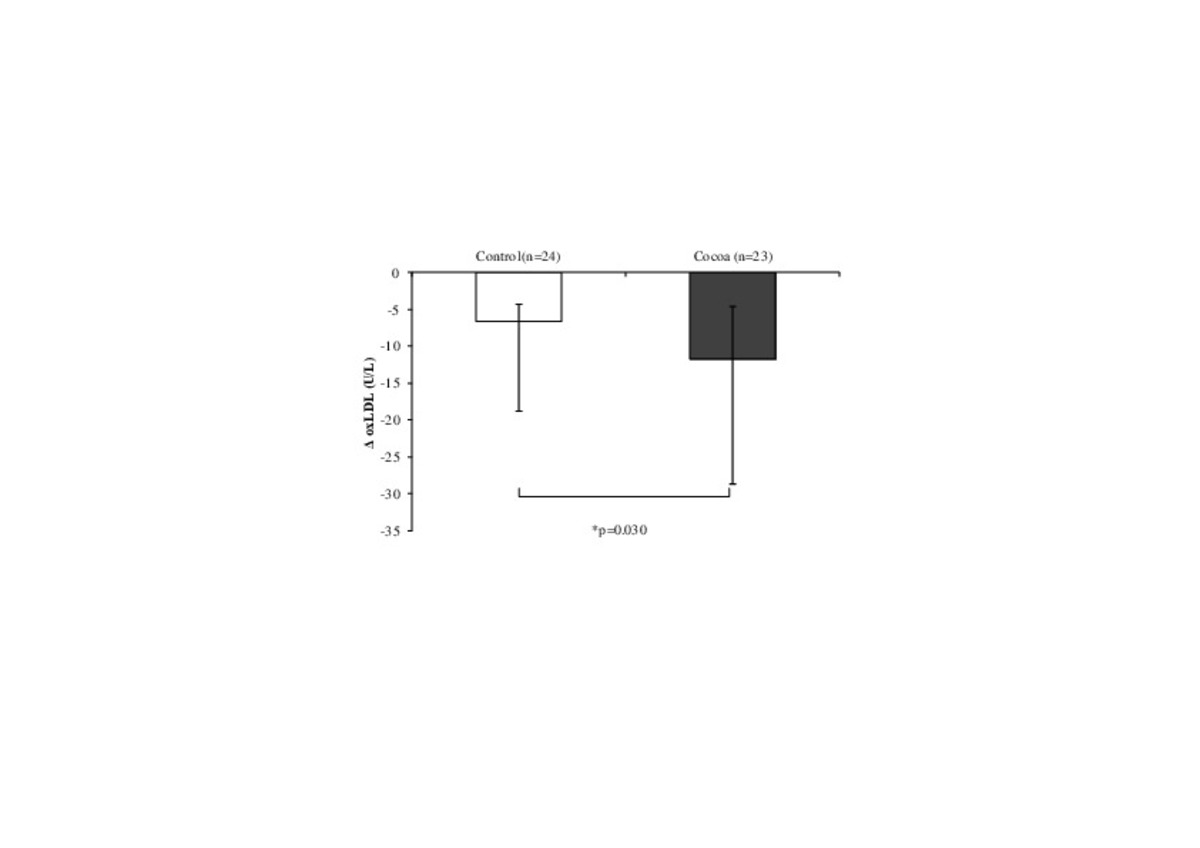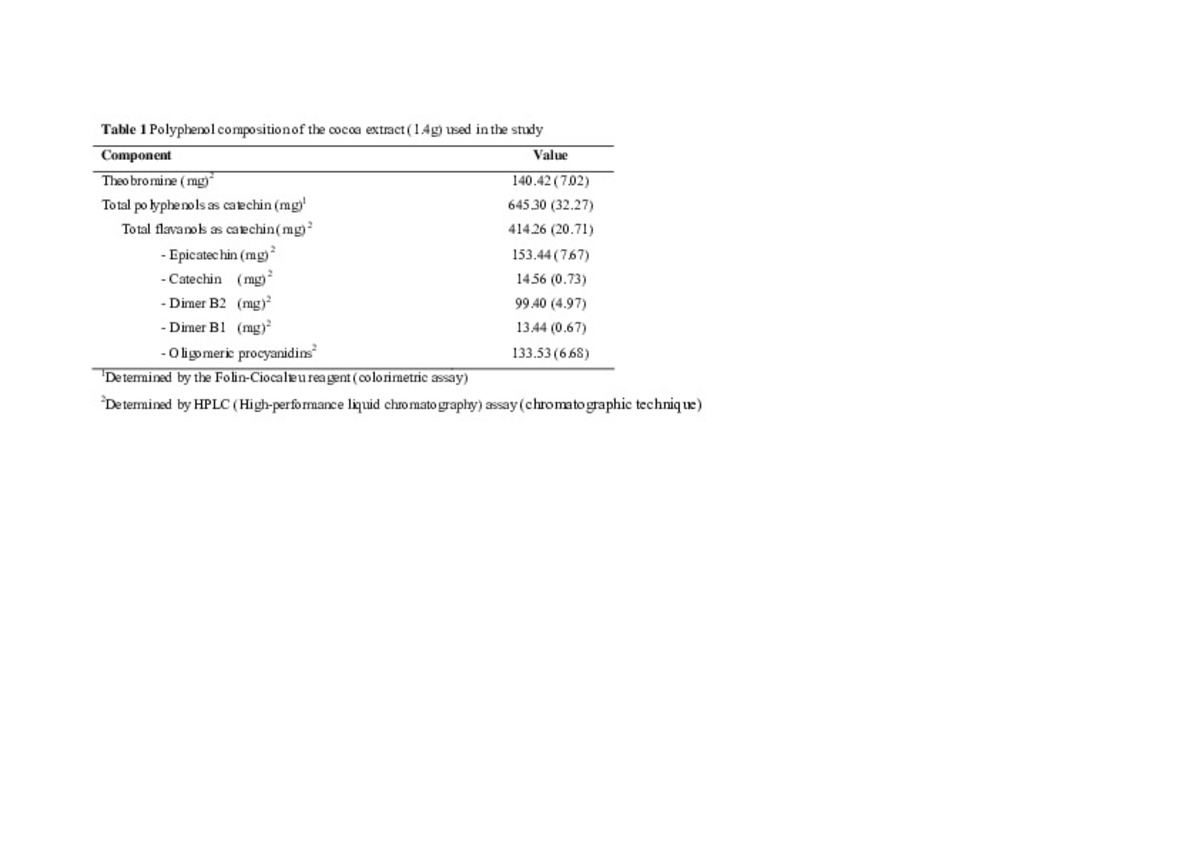Oxidized LDL levels decreases after the consumption of ready-to-eat meals supplemented with cocoa extract within a hypocaloric diet
Keywords:
Cocoa extract
Middle-aged
Obesity
Oxidative stress
oxLDL
Citation:
Ibero-Baraibar I, Abete I, Navas-Carretero S, Massis-Zaid A, Martínez JA, Zulet MA. Oxidized LDL levels decreases after the consumption of ready-to-eat meals supplemented with cocoa extract within a hypocaloric diet. Nutr Metab Cardiovasc Dis 2014 Apr;24(4):416-422
Statistics and impact
0 citas en

0 citas en

Items in Dadun are protected by copyright, with all rights reserved, unless otherwise indicated.










